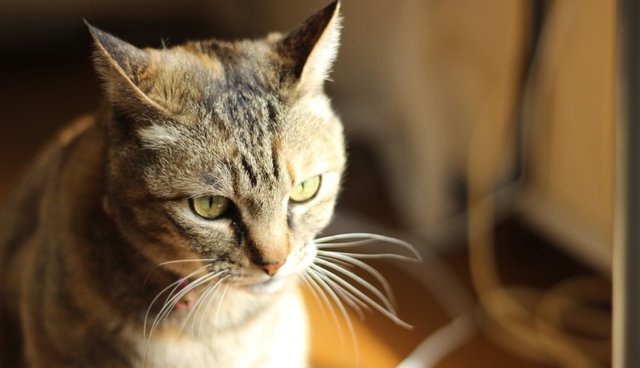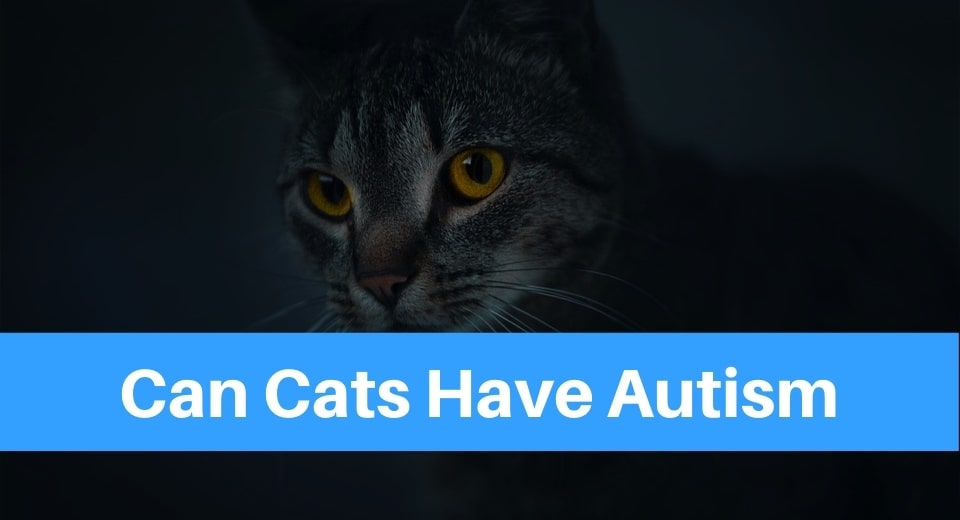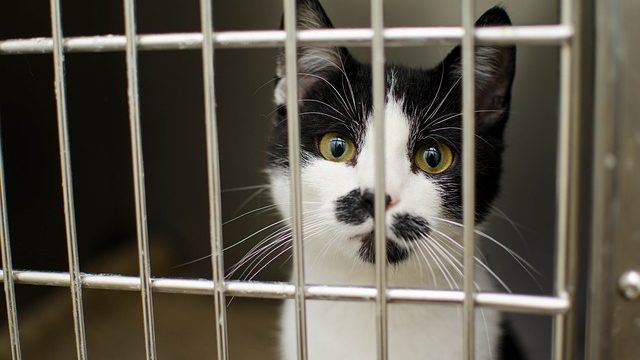Most cat owners know that their cats can get human diseases like obesity, cancer, and diabetes but can they develop autism? Autism is a mental condition. It makes it hard for a person to form any type of connection with other people or form a social relationship. The reason for a person to have autism could be due to a difference in brain shape or structure, or a chemical imbalance in their brain. Looking at what autism is and the causes, it is unlikely for a cat to be diagnosed as having autism but on the other hand, there is a possibility. The reason that there is a possibility is that cats have all the physical systems that autism can affect. They have all five senses and a brain, just like humans.

There is a possibility that a cat could show behaviors that could suggest autism but it is unlikely that you could have them diagnosed with it. For a cat to show traits that are similar to a person with autism, there are many factors to consider. It could be possible for a cat to have a disease similar to autism but once again, it would be hard to do tests to find out. Cats and humans have different genetic profiles so you cannot diagnose a cat with autism just based on human criteria for diagnosing autism.
Reasons a cat may have autistic-type behaviors
- Physiological abnormalities
- Poor nutrition
- Infectious diseases
Types of conditions that mimic autism
- Poor doers—this is when a kitten shows signs of having difficulty in functioning or weakness. They are called poor doers because they are not doing the same things as the rest of the litter in regards to activity, physical development or social function.
- Fading kitten syndrome—some of the reasons that a kitten might develop this syndrome can include infectious diseases, hypothermia, hereditary defects, trauma, or inadequate nourishment. Another name for this syndrome is the failure to thrive. It usually affects kittens between two and nine weeks of age only
Autistic tendencies cat can display

- Sensory abnormalities—some cats may suffer from reduced responsiveness, uncoordinated moves, and lack of focus. These do not signify autism. This behavior can be caused by depression, an infected wound, or organ failure. If your cat suffers from any of these you should take them to the vet immediately.
- Less social interaction—there are some cat breeds that just like to have time alone and just do not want to interact with people or animals. If your cat does this, then it is just their nature. How much exposure a kitten gets from interacting with other people and animals as it starts to grow will play an important part in how much it will socialize. It is nothing to worry about unless you see an abnormal behavioral change. When cats appear to be aloof toward other cats this is not unusual. It is just that cats are showing respect toward the space of the other cat. Cats seem to know that most of them are independent and like to be left alone, so they respect that in other cats.
- Vocalization—this is a common symptom of autism in both cats and humans. Lack of vocalization or excessive vocalization is very normal in those that are autistic. A cat that is meowing, purring or chirping around people or other animals, does not necessarily mean that they are autistic. Some breeds of cats do not vocalize at all, some that vocalize a lot, and some that rarely do.
- No eye contact—in cat body language, eye contact is thought to be a threat so that is why it is hard for a cat to look you in the eyes. A person with autism has difficulty keep eye contact with others so this is why some think this trait is an autistic tendency in cats.
- Staring into space or at nothing in particular
- Running around the house for no apparent reason
What to do if you think your cat has autism-like behaviors

If you think that it is possible that your cat is displaying signs or symptoms of having autistic-type behaviors, the best thing that you can do is treat them as you would a child with autism.
- Try to avoid exposing your cat to loud noises
- If they do not want to be cuddled or picked up, then give them space. When they are ready for cuddles, they will let you know.
- Be careful not to startle your cat
- Find toys that give cats tactile and visual stimulation
In conclusion
If your cat is starting to show signs of social function or abnormality, then you should take them to the vet so they can find out the cause of your cat’s behavior. Many times it is a simple thing to fix, like changing their diet. So if your cat seems not to want any social contact with you or other cats, or seems disinterested in things, there is no cause to worry. There is a possibility that your cat may just not be one that likes to socialize. From one cat to another, their personality varies so you may just have a cat that likes to be a loner. Once you visit the vet and have your cat checked out, the vet can tell you if there is anything wrong to cause the behavior or if it is normal behavior for your cat.
It is important to remember that each cat is unique and has a personality all their own. So if your cat appears to be antisocial, maybe they did not have enough socialization when they were younger. All cats, like humans, want their alone time, so respect that when they do. Unless they suddenly have an abnormal behavioral change, then just love them for who they are. If there is a sudden behavioral change, talk to your vet.
It is highly unlikely a cat would have autism but there could be a possibility.
